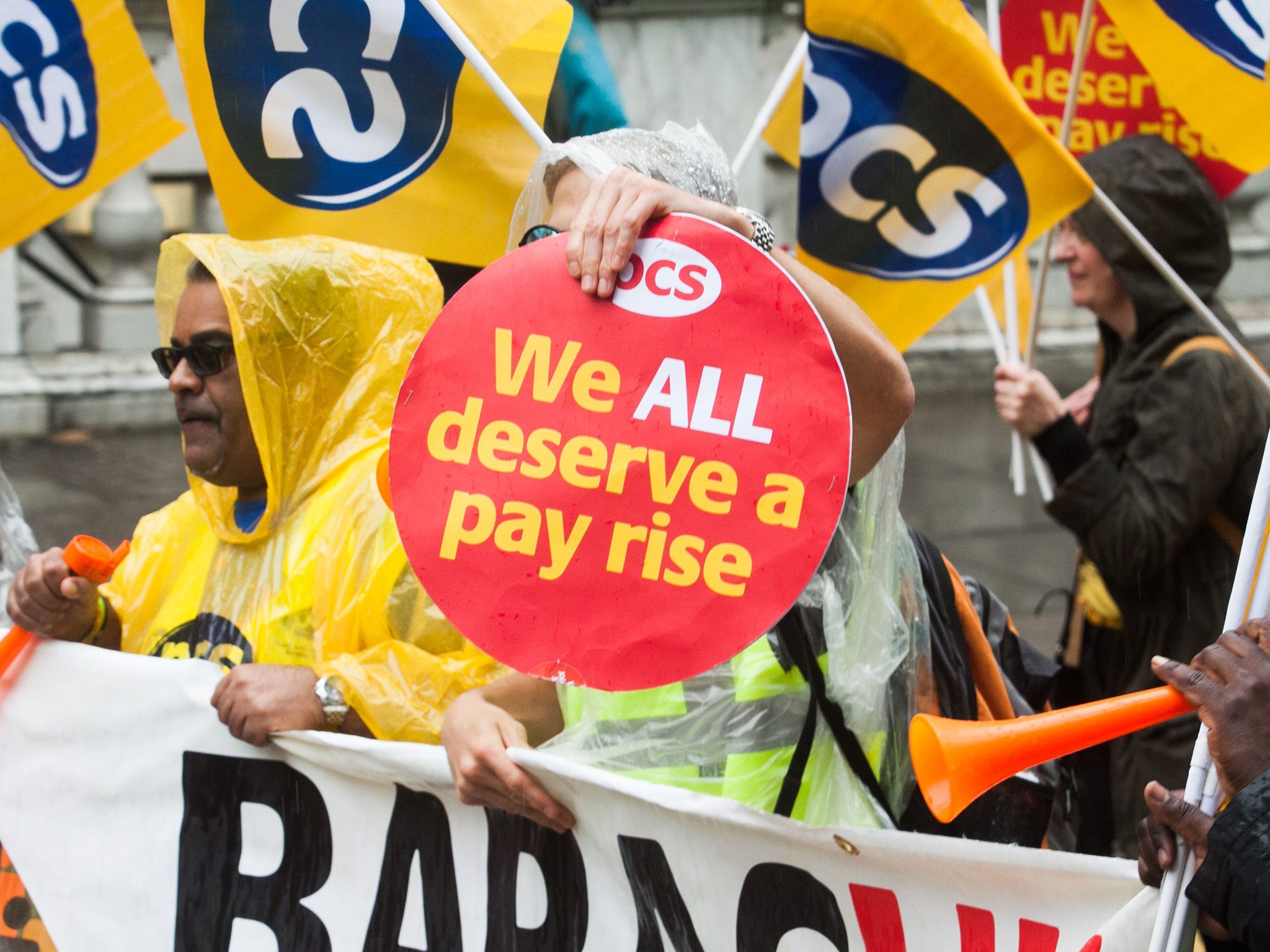The unions have guided Labour throughout its history – now they must do the same on Brexit
The trade union movement is gradually moving towards support for a second referendum. What will that mean for the Labour Party?


Your support helps us to tell the story
From reproductive rights to climate change to Big Tech, The Independent is on the ground when the story is developing. Whether it's investigating the financials of Elon Musk's pro-Trump PAC or producing our latest documentary, 'The A Word', which shines a light on the American women fighting for reproductive rights, we know how important it is to parse out the facts from the messaging.
At such a critical moment in US history, we need reporters on the ground. Your donation allows us to keep sending journalists to speak to both sides of the story.
The Independent is trusted by Americans across the entire political spectrum. And unlike many other quality news outlets, we choose not to lock Americans out of our reporting and analysis with paywalls. We believe quality journalism should be available to everyone, paid for by those who can afford it.
Your support makes all the difference.As the TUC’s 150th anniversary congress opens in Manchester, the trade unions are once again facing the challenge of the 1930s and 1980s – can they nudge Labour to a place where they can springboard to power?
Labour was gifted a pleasant surprise by Theresa May with last year’s election but has not been able to build on that success as opinion polls stay stubbornly lower than that which is required for victory.
Trade unions are based on the principle of mutual solidarity and democratic loyalty. They have offered that to Jeremy Corbyn since 2015 but now are beginning to demand a say in Labour’s next direction of travel.
This is similar to the 1930s when the unions hauled Labour back from pacificism to a clearer sense of the need to defend European democracy. In the 1980s Labour under the influence of Tony Benn and his aide, Jon Lansman, officially endorsed Brexit – leaving Europe – in its 1983 election manifesto. Unions pulled Labour back from this vote-losing dead end to supporting Jacques Delors and Social Europe against the Tory vision of economics and society in which employees had no voice or weight.
Last week’s NEC decision to put to bed the unnecessary summer horribilis for Labour happened because the unions told Corbyn it was time to adopt the international definition of antisemitism.
Now the decision of Britain’s second biggest private sector union, GMB, to support the call for a People’s Vote on Brexit allows Labour to get control of the Brexit debate instead of tailing behind Theresa May. The GMB has 640,000 members and sponsors 80 Labour MPs mainly in Labour industrial heartlands far away from London.
The GMB’s 80 Labour MPs join the 20 Labour MPs sponsored by the steel and textile workers’ union, Community and eight Labour MPs including John Cryer, the Chair of the Parliamentary Labour Party sponsored by the transport union, TSSA, which also urges a new vote.
And now the TUC general secretary, Frances O’Grady, has said the electorate should be consulted again over Brexit as more and more employees worry about their future of their jobs, which rely on just-in-time deliveries to and from the EU.
Concerns about Brexit were also a constant theme at union conferences this summer. The UK’s biggest union is Unison. At its June conference delegates from every sector of the UK’s public services – hospitals to local authorities as well as universities – condemned Brexit. Unison has 75,000 EU citizens in its membership, a lot of them fearful because of a lack of clarity over the precise details of their status.
With 108 Labour MPs now in unions calling for a second referendum, that represents about half of all the party’s MPs. To be sure, Labour MPs do not have to follow union orders but unions represent the Labour heartland working class voters and so cannot be ignored.
As David Davis was fond of saying when in opposition: “A democracy that cannot change its mind ceases to be a democracy.” Unions are now saying to Labour that two years after the Brexit vote was won in deceitful circumstances, a new vote is desperately needed.
Up to now however, the anti-Brexit campaign and the calls for a second referendum have come from London elites including former party leaders like Tony Blair and Nick Clegg, as well as unelected Lords, disaffected anti-Corbyn Labour MPs and prominent commentators.
The trade union campaign for a new consultation is instead rooted in working class anxieties and a desire to see Labour lead not lag behind in the debate over the greatest economic, geopolitical and constitutional upheaval in a century.
Can once again, the trade union movement save Labour from its internal weaknesses and demons to provide a boost to a party that can lead Britain out of a dark and uncertain future?
Denis MacShane, a former Labour Europe Minister, was a TUC delegate in the 1970s. His latest book is ‘Brexit, No Exit. Why (in the End) Britain Won’t Leave Europe’
Join our commenting forum
Join thought-provoking conversations, follow other Independent readers and see their replies
Comments